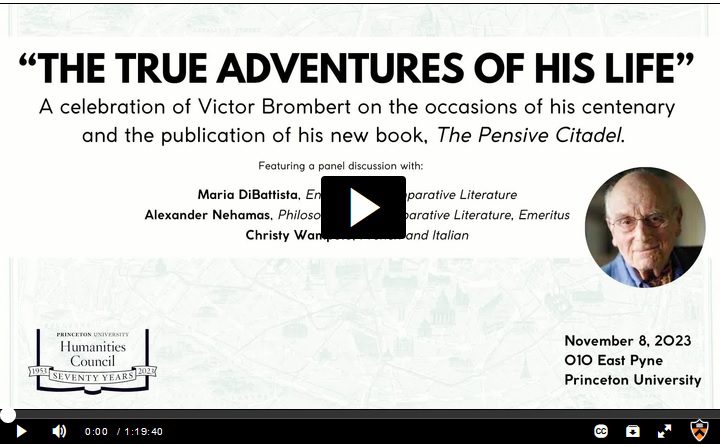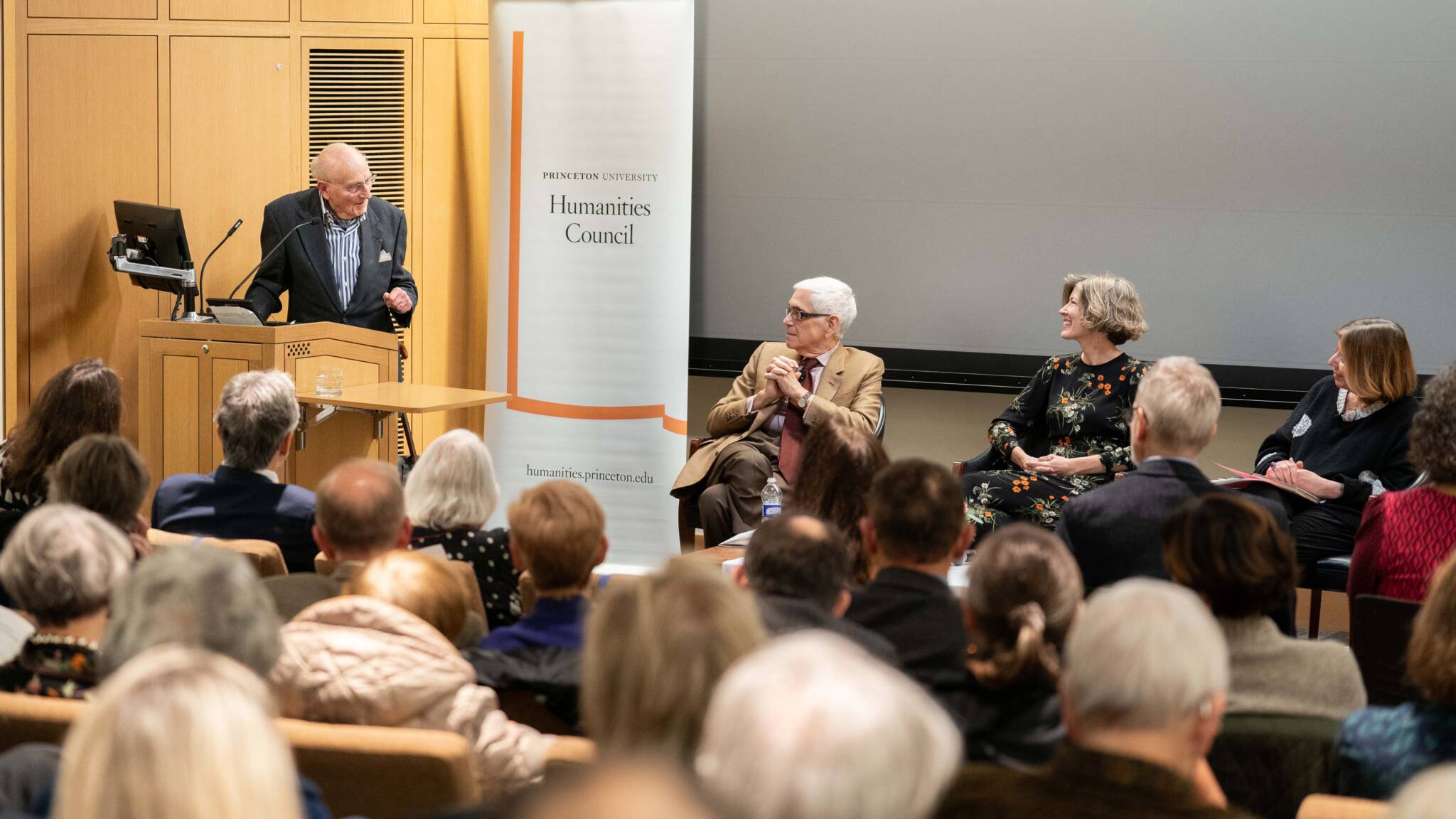“Vive l’amitié, viva l’amicizia…long live friendship!”
The closing salute from Victor Brombert – an homage to the room packed with friends, family, and former students and colleagues – was a fitting end to the centenary fête held in his honor on November 8 in East Pyne.
Hosted by the Humanities Council, the event celebrated Brombert’s 100th birthday and the release of his latest book “The Pensive Citadel,” which was published by the University of Chicago Press in October. Within the collection of new essays, Brombert reflects on a century of literature and learning, from enrolling at Yale after serving in World War II with an elite intelligence unit called the Ritchie Boys, to learning from his literary companions and teaching students at Princeton.
Esther Schor, chair of the Humanities Council and the John J. F. Sherrerd ’52 University Professor and professor of English, welcomed guests to the event. “Tonight, we’re honoring an esteemed colleague, the author of vital and lasting works of literary criticism, and an inspirational teacher,” she said.
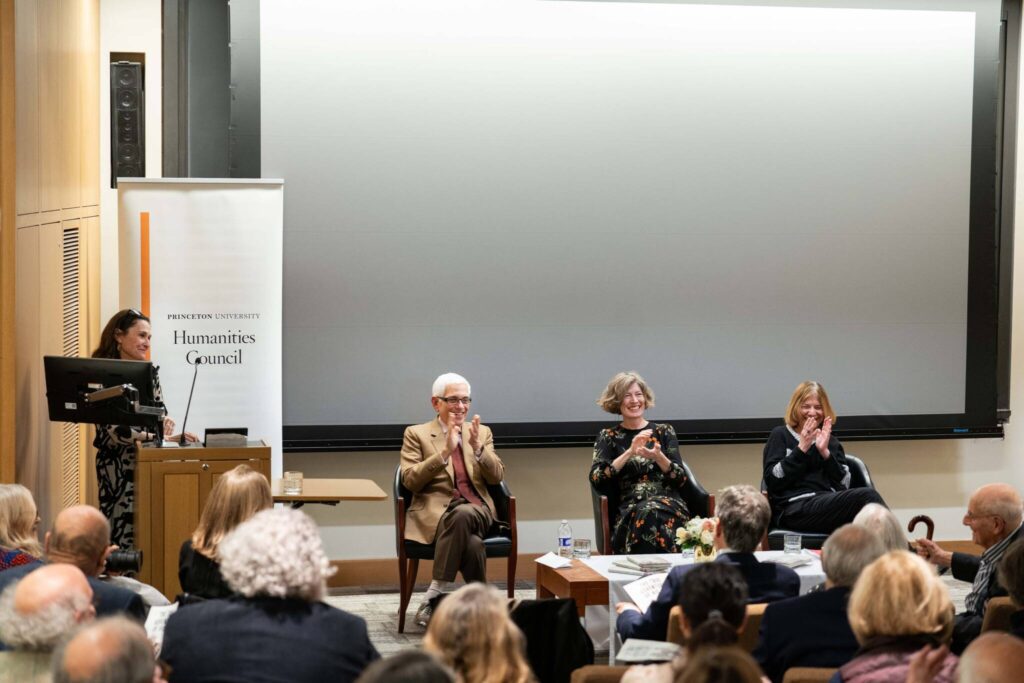
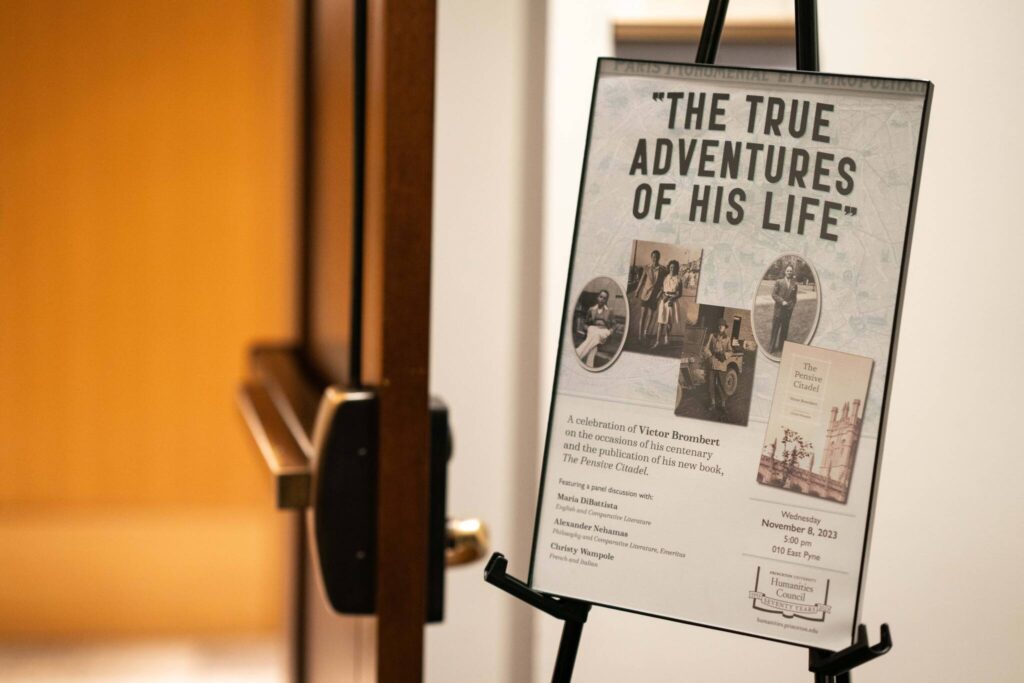
Brombert, the Henry Putnam University Professor of Romance and Comparative Literature, Emeritus, joined Princeton’s faculty in 1975. A scholar of 19th and 20th century French literature, he taught undergraduate and graduate courses on poetry and the modern novel. Brombert has published 16 books and has written extensively about his own scholarly heroes – Stendahl, Flaubert, Hugo, Woolf, Montaigne, and Baudelaire among them.
At Princeton, he received the Howard T. Behrman Award for distinguished achievement in the humanities and the President’s Award for distinguished teaching. He chaired the Humanities Council from 1989 to 1994 and directed the Council’s Gauss Seminars in Criticism from 1983 to 1994. He transferred to emeritus status in 1999, a retirement he coined his “permanent sabbatical.”
The title of the Council’s celebration, “The True Adventures of His Life,” stemmed from a quote in “The Pensive Citadel” where Brombert references Gustave Flaubert’s claim that sentences – both the ones that he committed to paper himself and the ones that he had read – were the true adventures he experienced in his lifetime.
“We designed our program to share with you the pleasures and provocation of what I’ll call ‘the reading life,’” said Schor. “[Brombert’s] new book reminds us how momentous a role our reading plays in what we think, and do, and feel, and how transformative reading can be.”
During the 90-minute panel discussion, three members of the University’s humanities faculty, Maria DiBattista, Alexander Nehamas, and Christy Wampole, paid tribute to Brombert and his influences by each reading aloud a carefully selected excerpt from a novel significant to his work.
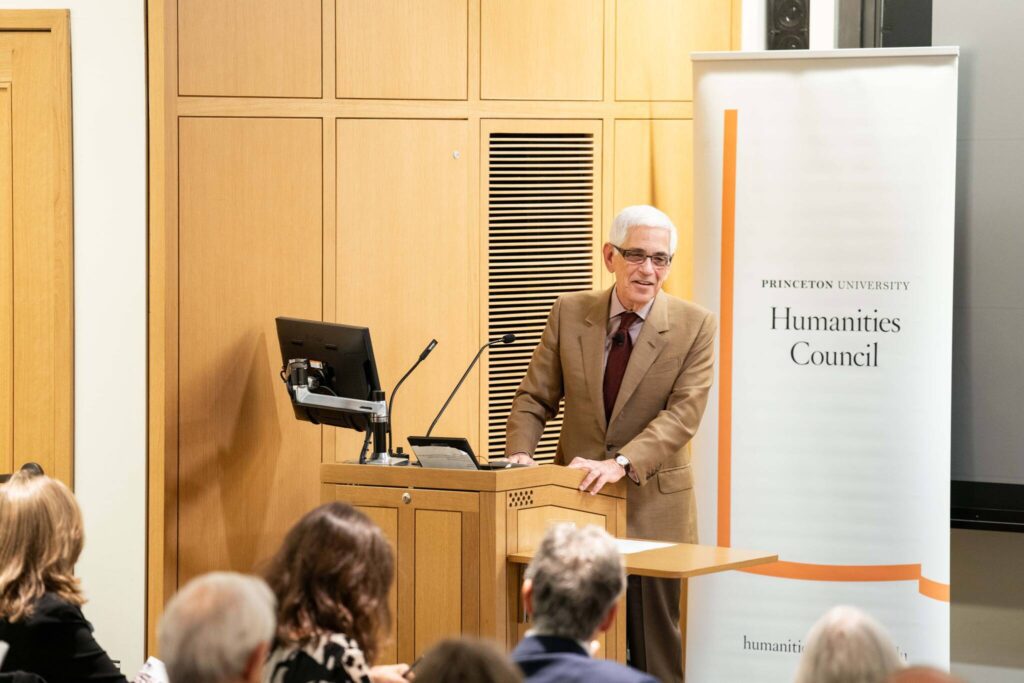
Nehamas, Edmund N. Carpenter II Class of 1943 Professor in the Humanities, Emeritus, and professor of philosophy and comparative literature, emeritus, began the discussion by sharing a passage from Marcel Proust’s “Swann’s Way,” the first of seven volumes from “In Search of Lost Time.” While Brombert never wrote at length about Proust’s work, he shared a special reverence for the writing.
Nehamas discussed the connection between his chosen Proust passage and an essay in “The Pensive Citadel” about the importance of rereading. “If you read [this excerpt] for a first time, you read it as a story, as an unfolding story of a young man who tries to become a writer and reaches a point where he does,” said Nehamas. “And then, you can reread it as the book that he has written already that is already in front of us.”
With a renewed perspective, the reader can regain lost time. “As the young narrator [in the passage] regains time, we regain the time as well,” he said. “Victor, regain and gain again as much time as you possibly can.”
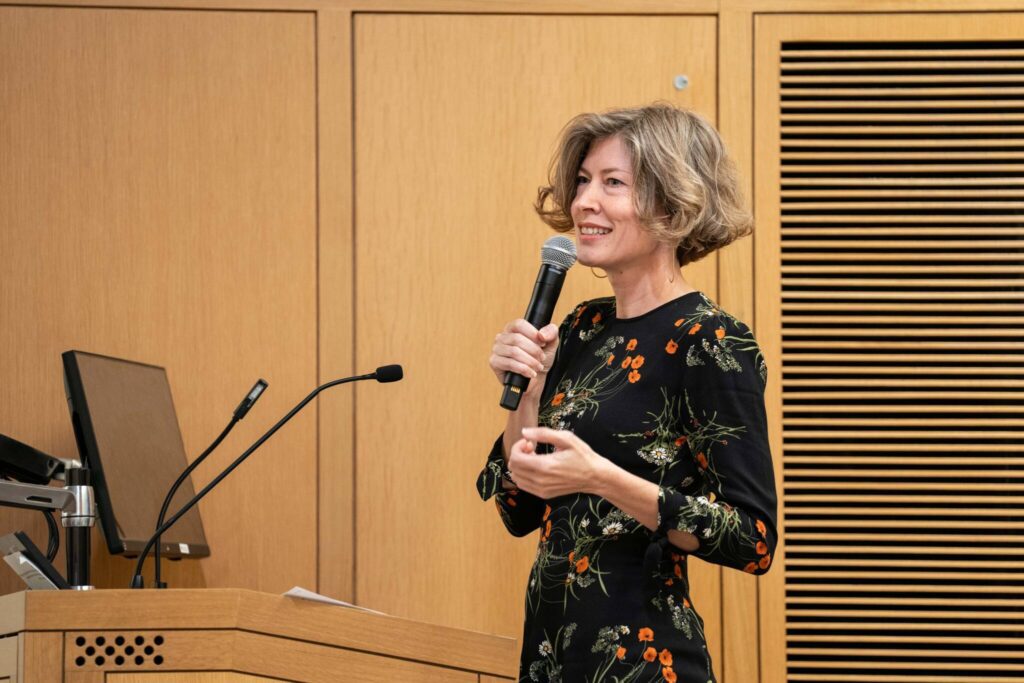
Wampole, professor of French and Italian and the director of the Council’s Interdisciplinary Doctoral Program in the Humanities, spoke next, reading a selection from Flaubert’s “Madame Bovary.” In the excerpt, Charles and Madame Bovary decide that Emma’s incessant reading is causing the problems in their marriage and must be prevented.
“Just as a thought experiment, I want to ask you to think about your very favorite books, from your favorite authors…those that you return to again and again, that you read and reread,” said Wampole. “Try to imagine for just a moment, if someone right now were to take those books away. Can you even imagine that? Someone else deciding that you shall do no more reading?”
Wampole, who wrote the foreword to “The Pensive Citadel,” concluded her remarks by thanking Brombert for his inspiration.
“It was such a pleasure to take inspiration from you, a model of someone who really put books first, who got his students to just spend some slow, alert time with these books, to let them do their work of enchantment,” she said.
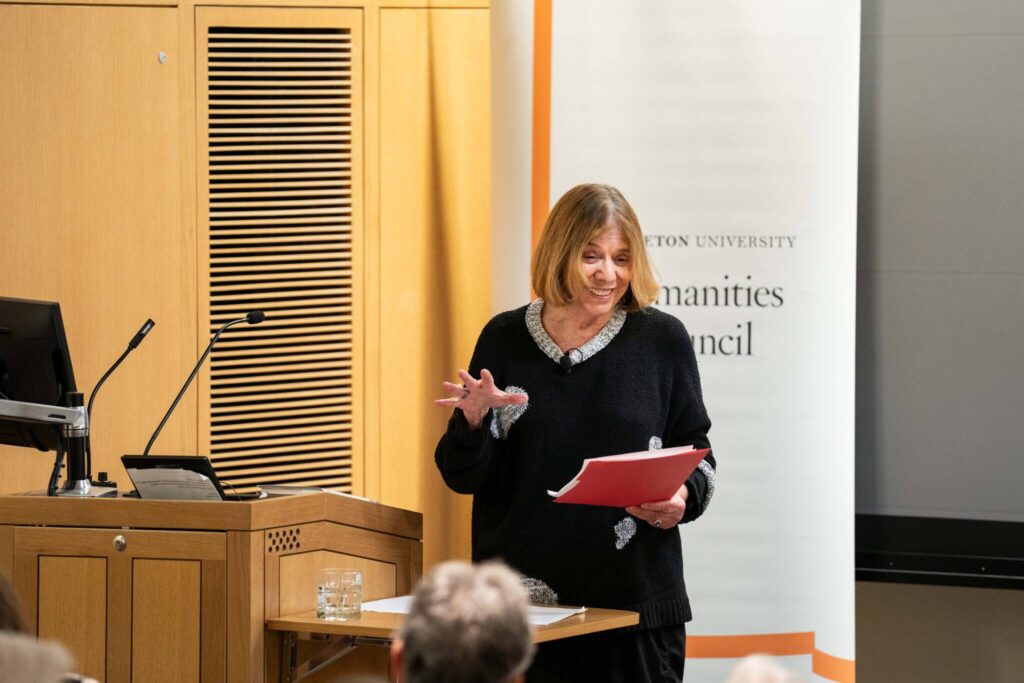
DiBattista, Charles Barnwell Straut Class of 1923 Professor of English and professor of English and comparative literature, chose a passage from Virginia Woolf’s “To the Lighthouse.”
“I hope that [my tribute] to you will reflect what you have taught me over the years and what your book helped me remember about why I became not just a scholar, but a reader, in the first place,” DiBattista said.
She chose the passage – a self-reflection from Mrs. Ramsey—because “it echoes, amplifies, and deepens our appreciation of the moral and intellectual caliber of the true adventures of [Brombert’s] extraordinary life.”
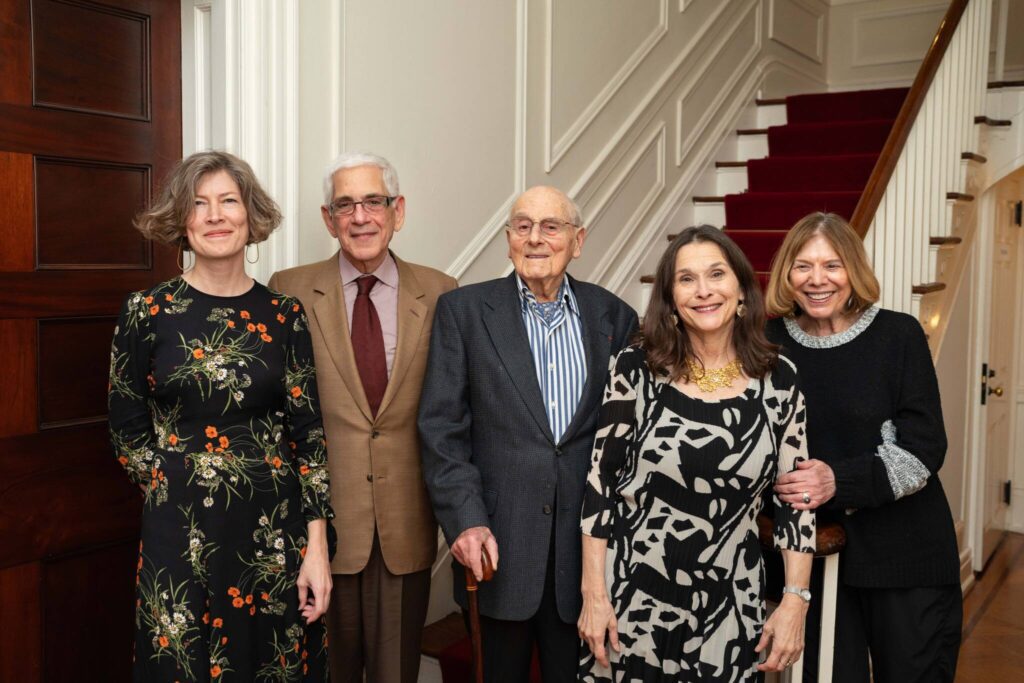
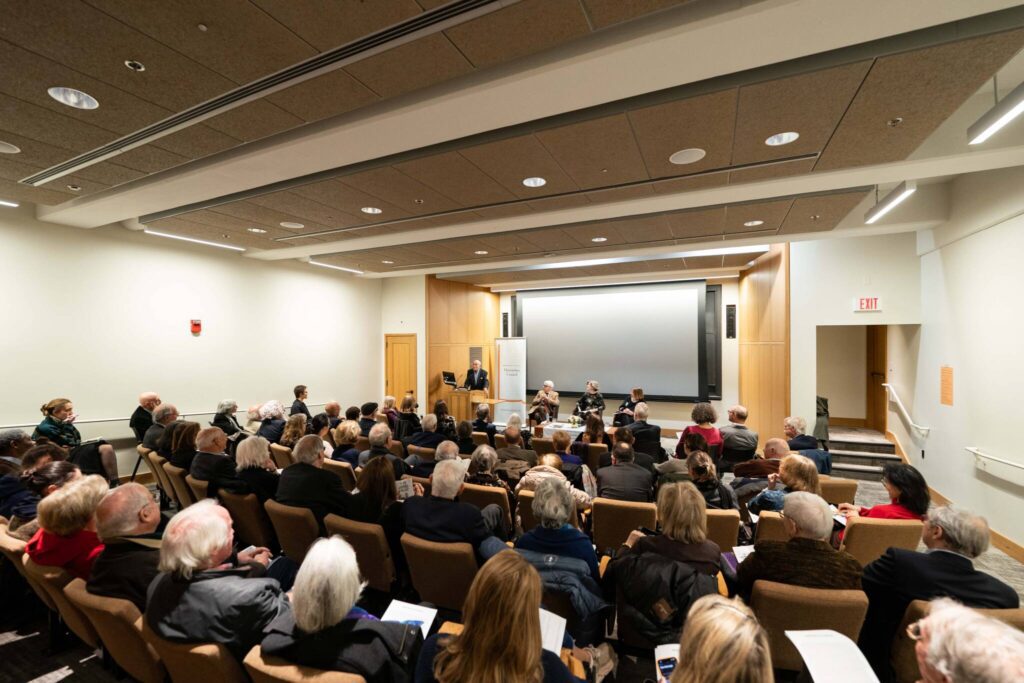
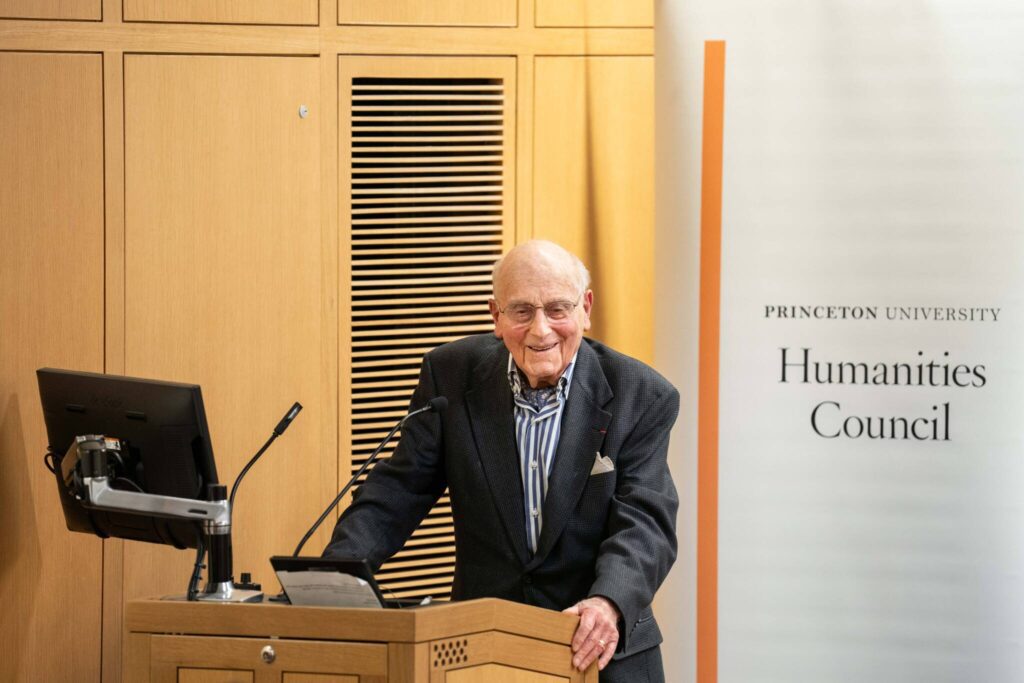
After a short conversation between the panelists, Brombert approached the podium to rapturous applause.
“I’m moved by what I heard,” he said. “It left me speechless – well, almost.”
Brombert emphasized the theme of friendship in his life and at the afternoon’s celebration. He recognized the faculty panelists and members of the audience, including several who flew in from across the country. At “the top of [his] list,” he thanked his children, Marc and Lauren, who were in attendance, and his wife of 73 years, Beth, who he called his “sharpest critic and the one who really encouraged me.”
As the event came to an end, Schor provided final remarks. “Thank you all very much for coming. Thank you, Victor, for sharing yourself with us,” she said. “I’ll salute you with a traditional Jewish toast: ‘May you live to 120!’”
Watch the full video of the event here.
